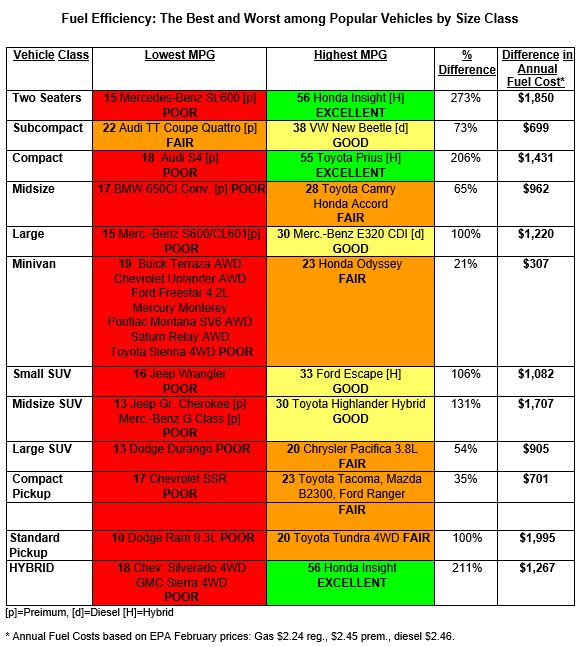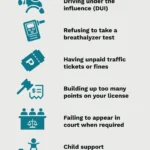Fuel efficiency, measured in miles per gallon (mpg), is a crucial factor for vehicle owners. It directly impacts your wallet by determining how much you spend on gasoline and also plays a role in reducing your environmental footprint. Understanding what constitutes good fuel economy and the factors that influence it can help you make informed decisions about your vehicle choices and driving habits. This article will delve into the concept of fuel efficiency, analyze the significance of a 13 miles per gallon rating, and explore strategies for improving your vehicle’s mpg.
This article will first provide a comprehensive explanation of fuel efficiency and how it is measured. Next, we will examine the 13 MPG rating in detail, assessing whether it falls below average. We will then discuss the typical fuel economy figures for various vehicle types and explore the factors that can significantly impact your mpg. Finally, we will offer practical tips and strategies to enhance your vehicle’s fuel efficiency.
Fuel Efficiency Explained
Fuel efficiency, often expressed as miles per gallon (mpg), represents the distance a vehicle can travel on one gallon of fuel. A higher mpg rating indicates better fuel economy, meaning you can cover more miles with less gasoline. Conversely, a lower mpg signifies that your vehicle consumes more fuel to achieve the same distance.
Several factors contribute to a vehicle’s fuel efficiency, including engine size and type, transmission system, aerodynamics, tire pressure, and driving habits. Modern vehicles incorporate advanced technologies like direct injection, variable valve timing, and start-stop systems to optimize fuel consumption and improve mpg ratings.
Understanding your vehicle’s fuel economy is essential for managing your expenses and minimizing your environmental impact. By monitoring your mpg and adopting fuel-efficient driving practices, you can significantly reduce your reliance on gasoline and contribute to a more sustainable future.
13 MPG Rating
A 13 miles per gallon rating is generally considered below average for most vehicles currently on the market. While some older or less efficient models may achieve this mpg figure, newer cars typically surpass this mark considerably.
Several factors can contribute to a vehicle achieving such a low mpg rating, including a large engine size, outdated technology, poor maintenance, and aggressive driving habits.
Average Fuel Economy
Average fuel economy varies depending on the type of vehicle. Compact cars and hybrids generally achieve higher mpg ratings than SUVs and trucks due to their smaller engines and lighter weight.
According to recent data from the U.S. Department of Energy, the average fuel economy for new vehicles sold in the United States is around 25 mpg. This figure reflects a continuous trend towards improved fuel efficiency driven by government regulations and technological advancements.
Factors Affecting MPG
Numerous factors can influence your vehicle’s fuel economy, both controllable and uncontrollable.
Driving Habits
Aggressive driving practices such as rapid acceleration, hard braking, and excessive idling significantly reduce mpg. Maintaining a steady speed, anticipating traffic flow, and avoiding unnecessary stops can help improve fuel efficiency.
Vehicle Maintenance
Regular maintenance is crucial for optimal fuel economy. Ensuring proper tire inflation, replacing air filters regularly, and keeping your engine tuned can contribute to improved mpg.
Terrain and Weather Conditions
Driving uphill or in hilly terrain consumes more fuel compared to driving on flat surfaces. Similarly, cold weather conditions can decrease fuel efficiency due to increased engine workload.
Improving Fuel Efficiency
There are several practical steps you can take to enhance your vehicle’s fuel economy and save money at the pump.
Optimize Tire Pressure
Maintaining proper tire inflation is essential for fuel efficiency. Underinflated tires increase rolling resistance, requiring your engine to work harder and consume more fuel. Regularly check your tire pressure and adjust it according to the manufacturer’s recommendations.
Reduce Unnecessary Weight
Carrying excess weight in your vehicle increases its load and reduces mpg. Remove any unnecessary items from your trunk or backseat to lighten the load and improve fuel efficiency.
Drive Smoothly
Avoid aggressive driving habits such as rapid acceleration and hard braking. Accelerate gradually, maintain a steady speed, and anticipate traffic flow to minimize fuel consumption.
Conclusion
A 13 miles per gallon rating is generally considered below average for modern vehicles. While various factors can influence your vehicle’s fuel economy, understanding these factors and adopting fuel-efficient driving practices can significantly improve your mpg and reduce your reliance on gasoline. By prioritizing regular maintenance, optimizing tire pressure, reducing unnecessary weight, and practicing smooth driving habits, you can enhance your vehicle’s fuel efficiency and contribute to a more sustainable future.



